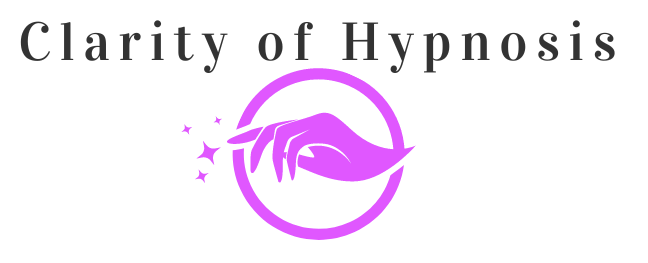Can hypnosis help me quit smoking in Chesapeake VA?
If you’re reading this, you’ve probably asked yourself “Why is it so hard to quit smoking?” — and the truth is, it’s not just about nicotine. Smoking is both a chemical addiction and a psychological habit that embeds itself into your daily routine, emotions, and identity.
At Clarity of Hypnosis here in Chesapeake, Virginia, we specialize in helping people finally break free from cigarettes using clinical hypnosis, also known as hypnotherapy. This isn’t willpower, guesswork, or gimmickry—it’s a proven, science-based approach that helps you rewire how your brain responds to cravings and triggers.
Whether you live near Greenbrier, work in Downtown Chesapeake, or commute along I-64, you don’t have to face this habit alone. Let’s explore how hypnosis can help you quit smoking for good.
Why Is Quitting Smoking So Hard for So Many Chesapeake Residents?
Nicotine is one of the most addictive substances known to science. Each puff releases dopamine, the brain’s “feel-good” chemical, which reinforces the habit over and over. Over time, smoking becomes a companion—something to do when you’re stressed, driving, socializing, or simply bored.
That’s why quitting through sheer willpower often fails. You can’t just fight a physical craving; you must change the mental patterns and emotional triggers that keep the habit alive. That’s exactly where hypnosis excels.
How Does Hypnosis Help You Stop Smoking Naturally?
Clinical hypnosis works by helping you reprogram your subconscious mind—the part of your brain responsible for habits and automatic responses.
During your hypnosis session, you’ll enter a state of relaxed focus (similar to meditation or daydreaming). In this state, your mind becomes open to positive, constructive suggestions such as:
- “I am calm and free without cigarettes.”
- “My body feels clean and clear when I breathe deeply.”
- “I can handle stress without reaching for a cigarette.”
These aren’t just affirmations—they’re subconscious retraining. You’re literally teaching your brain to stop associating smoking with relief or reward and to start associating freedom with being smoke-free.
What Happens to Your Mind During a Hypnosis Session?
Under hypnosis, your brainwave patterns shift from beta (alert) to alpha and theta (relaxed, creative) states.
This is the same range used in elite mental training and meditation. Here, your
conscious resistance drops, and your
subconscious mind listens more openly—allowing deep behavioral change to occur.
That’s why hypnosis is such a powerful tool for long-term change—it addresses the root of the problem, not just the surface behavior.
What Emotional Triggers Keep You Smoking—and How Does Hypnosis Help You Break Them?
Think about those times when you crave a cigarette the most:
- After a stressful day at work in Greenbrier or Deep Creek
- During your morning coffee
- While driving down Battlefield Boulevard
- Or when hanging out with friends who smoke
Those moments aren’t about nicotine—they’re about emotion. Hypnosis helps you unlink those emotional ties.
You’ll learn new coping strategies to handle stress, anxiety, or boredom without lighting up. By reframing these triggers, you begin to respond calmly instead of reacting automatically.
How Is Our Chesapeake Smoking Cessation Hypnosis Program Personalized for You?
At Clarity of Hypnosis, we never use a one-size-fits-all script. Every smoker’s journey—and every reason they smoke—is different.
That’s why your hypnotherapist will:
- Understand your smoking patterns—when and why you smoke.
- Identify emotional anchors that keep the habit alive.
- Create customized hypnotic suggestions that retrain your subconscious associations.
- Equip you with mental tools to manage cravings and reinforce success long after your session.
This isn’t just about quitting for a week—it’s about creating a permanent shift toward a healthy, smoke-free identity.
What Does Life Feel Like After You Quit Smoking with Hypnosis?
Imagine walking past someone smoking in
Western Branch Park or
Town Place at Greenbrier and feeling absolutely nothing—no craving, no pull, just calm confidence.
That’s what clients often describe after hypnosis.
You’ll notice changes like:
- Increased energy and lung capacity
- Clearer skin and sharper focus
- Improved sense of smell and taste
- A newfound pride and control in your life
The American Psychological Association (APA) and Mayo Clinic both recognize hypnosis as an evidence-based therapy for habit change. And according to the Cleveland Clinic, hypnosis can reduce cravings, stress, and withdrawal symptoms safely and effectively.
How Fast Will You Notice Results After a Hypnosis Session?
Many Chesapeake clients report noticeable improvements after just one session—especially in motivation, confidence, and cravings. Others choose to attend a few sessions for reinforcement, depending on how long they’ve smoked or how deeply ingrained the habit is.
The most important thing is this: hypnosis helps you make quitting feel possible again. You’re not fighting your mind—you’re working with it.
Ready to Quit Smoking in Chesapeake for Good?
Breaking free from nicotine isn’t just a decision—it’s a declaration of independence.
At
Clarity of Hypnosis, our certified hypnotherapists guide you every step of the way, helping you
regain control, restore your health, and rediscover confidence in a smoke-free life.
Whether you’re near
Great Bridge,
Deep Creek, or anywhere in the
Hampton Roads area, your path to a healthier future can start right here.
Call Clarity of Hypnosis today to schedule your first session and finally say goodbye to cigarettes—for good.
Your lungs, your body, and your family will thank you.
Clinical Hypnosis Evidence: What Do Experts Say About Quitting Smoking?
- Cleveland Clinic 757-997-6290: Hypnosis helps patients quit smoking by targeting subconscious patterns behind cravings.
- Mayo Clinic: Notes hypnosis as a safe, proven technique for habit control and stress reduction.
- American Psychological Association (APA): Recognizes hypnosis as an effective behavioral therapy for addiction and habit change.

